Genres Of Books | Literary Genres
Oct 07, 2019 • 50 views
Brief:
There's a very broad classification of literary genres when we start from scratch. Either we could formally classify them into well-planned categories or just go on randomly naming the generic ones.
Well, when I talk of the word generic, I would like to draw your attention to an anomaly…
We usually associate the word 'generic' or 'general' to something that's common.
But when we deeply touch upon it, something 'generic' means 'Basic', something that's a starting point (root: base, meaning: platform), in simpler words, 'foundation' of something and not common.
Of course, a particular thing/phenomena could happen to be basic AND common at the same time.
That doesn't make both the words the same.
The casual English used in today's date, seems to have diluted those meanings, frankly!
Now, without using the above mentioned debatable words, let's just say that the following is a detailed guide to Literary Genres.
Mostly-Read
Fantasy
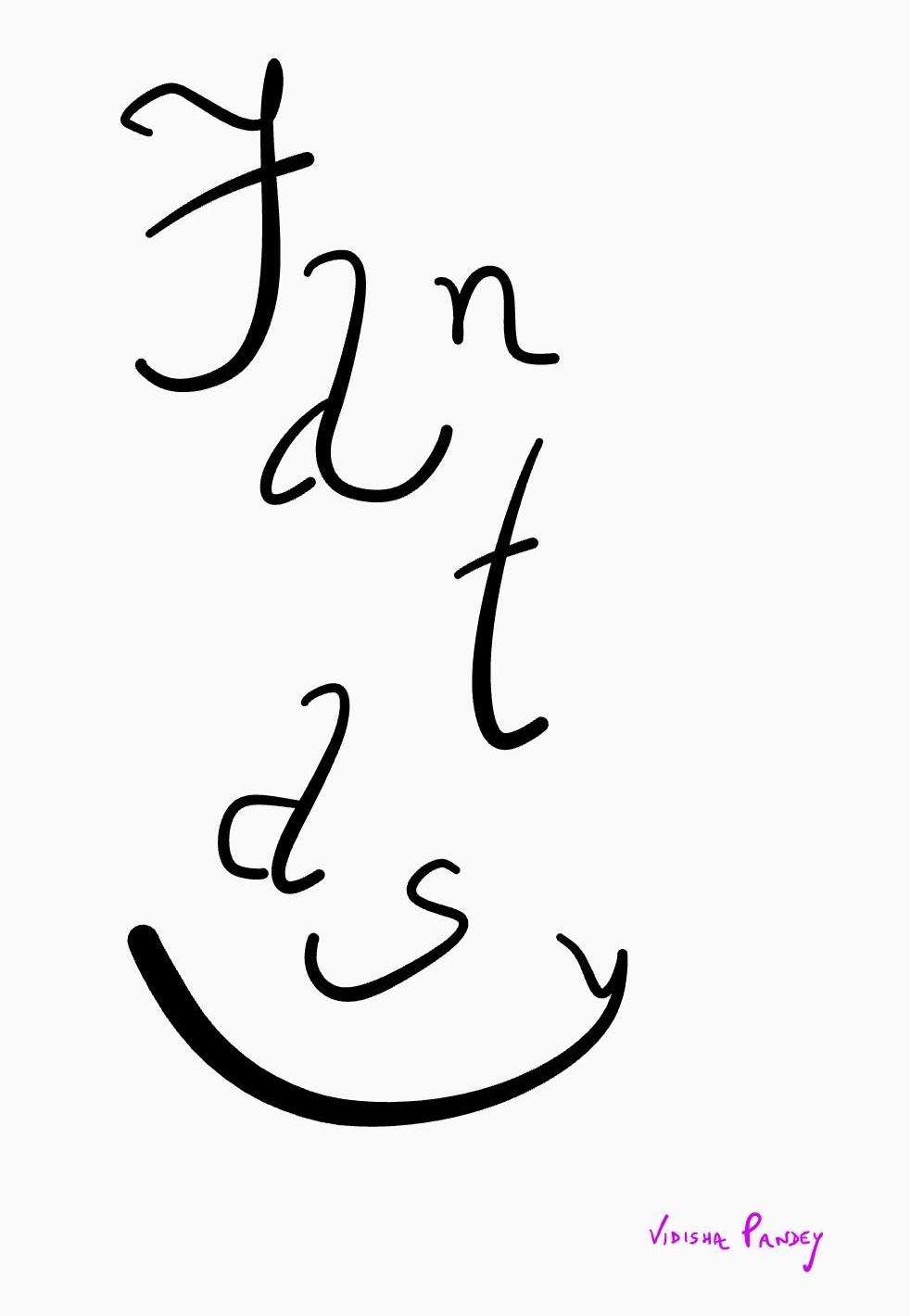
Fantasy is a genre that generally features the use of magic, wizardry, prophecy, supernatural phenomena, etc..in the plot, setting, or theme. Magical or mythological creatures as well as races other than humans also come under this.
Popular fantasy books:
Game of thrones: George R.R. Martin
The Name of the Wind: Patrick Rothfuss
American Gods: Neil Gaiman
Clockwork Angel: Cassandra Clare
The fifth season: N.K. Jemisin
The blade itself: Joe Abercrombie
Gardens of the moon: Steven Erikson
The Golden compass: Philip Pullman
Night Watch: Terry Pratchett
A Memory of Light: Robert Jordan and Brandon Sanderson
Science Fiction
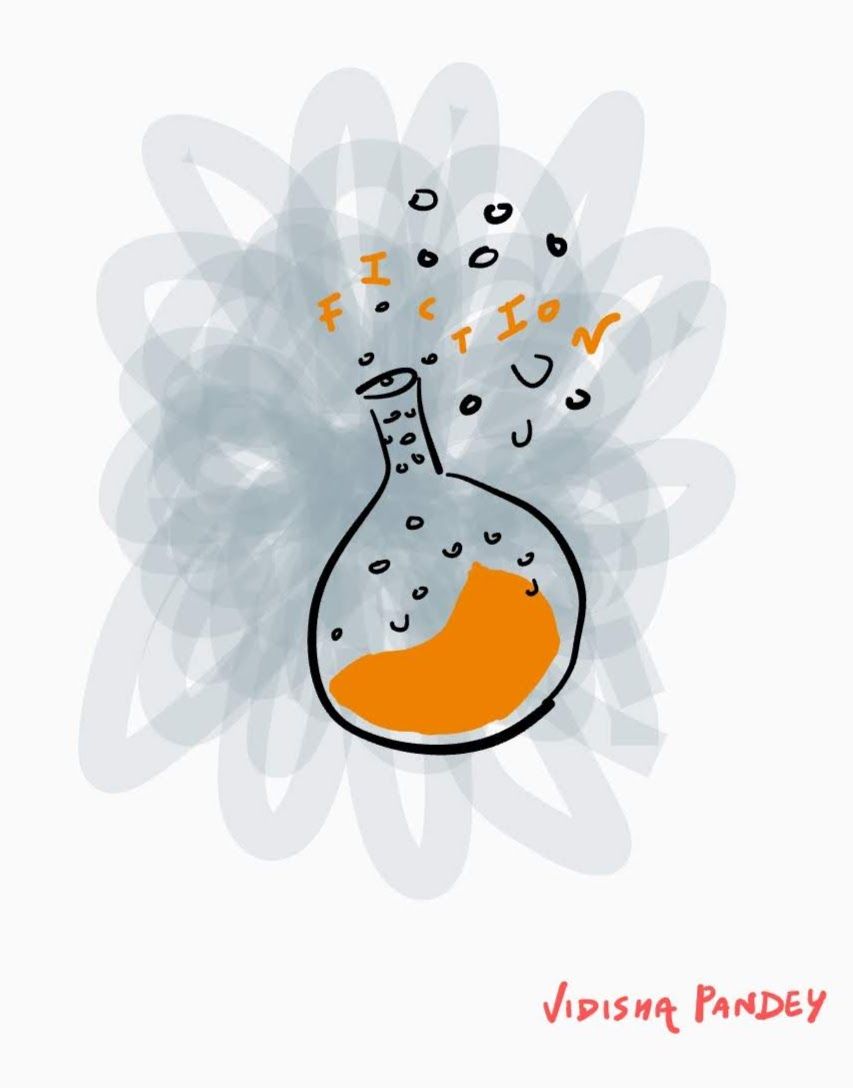
"Science fiction is a genre of speculative fiction that has been called the "literature of ideas". It typically deals with imaginative and futuristic concepts such as advanced science and technology, time travel, parallel universes, fictional worlds, space exploration, and extraterrestrial life. "
Popular Sci-fi books:
1984: George Orwell
Frankenstein: Mary Shelley
Dune: Frank Herbert
The Martian: Andy Weir
Children of time: Adrian Tchaikovsky
The fifth season: N.K Jemisin
The Hunger Games: Suzanne Collins
The Andromeda Strain: Michael Crichton
The Invisible Man: H.G Wells
Harry Potter Series (7)
Romance
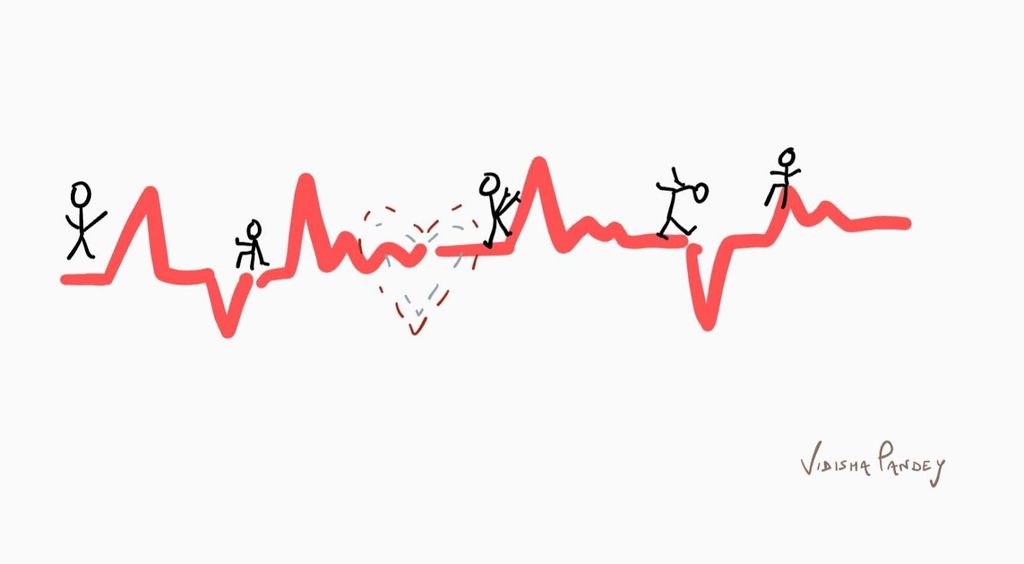
Novels of this type of genre fiction place their primary focus on the relationship and romantic love between people.
This has many subgenres ranging from-
Contemporary Romance
Historical Romance
Romantic Suspense
Spiritual romance
Paranormal or fantasy romance
Sci-fi romance
Young adult romance
Popular books from the Romantic Genre are:
Love in the time of Cholera: Gabriel Garcia Márquez
The light we lost: Jill Santopolo
Winter's tale: Mark Helprin
Eleanor and Park: Rainbow Rowell
Twilight: Stephenie Meyer
The Scarlet Letter: Nathaniel Howthorne
Lady of quality: Georgette Heyer
The Bride: Julie Garwood
Lord of Scoundrels: Loretta Chase
The Fault in our Stars: John Green
Thriller
Well, It is one genre that encompasses the sub-parts/characteristics of many genres like Suspense, Horror and dark comedy at times.
It involves feelings of anticipation, anxiety and excitement.
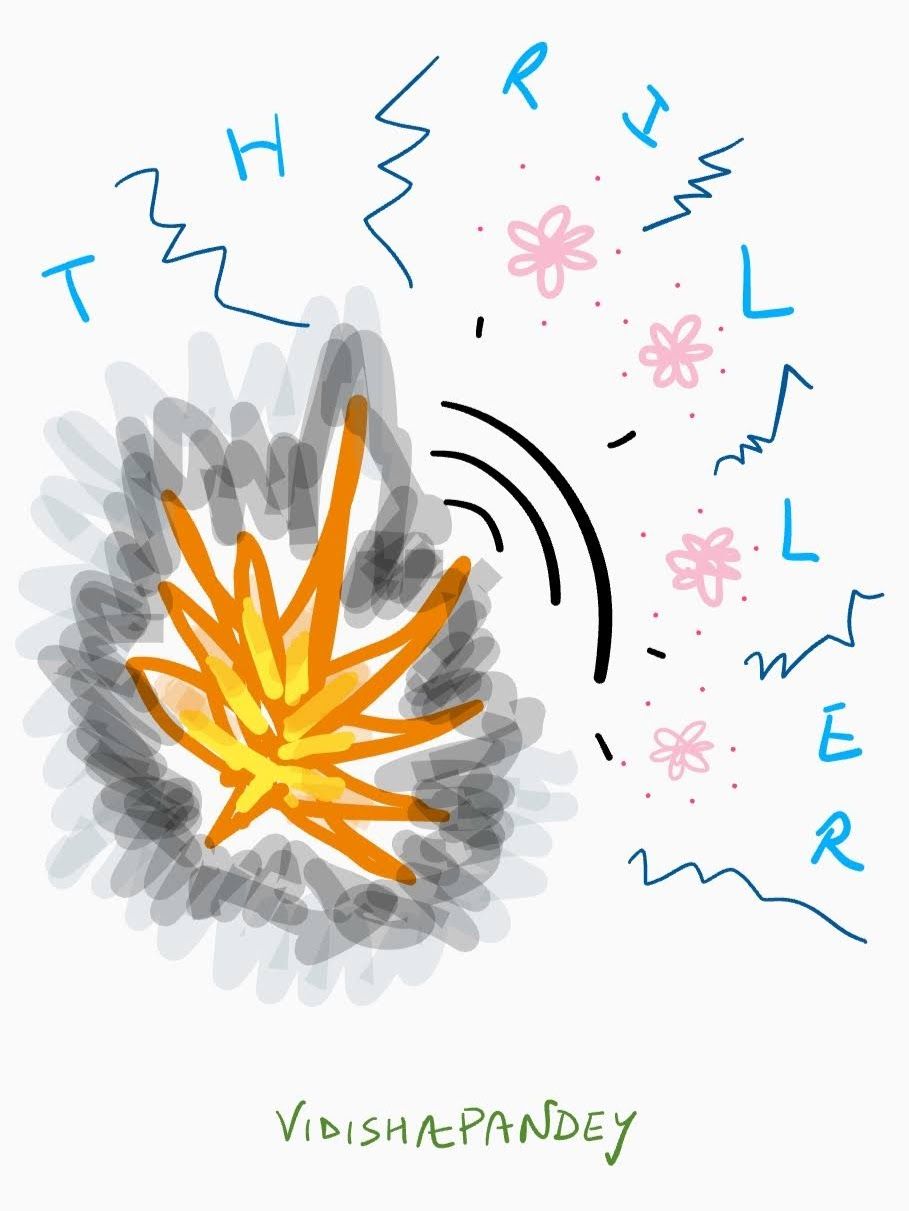
Of course, every thriller novel isn't meant to only have dark elements or have a negative/retrogressive ending but that is how most people usually interpret the genre.
As readers, you must know and keep in mind the slightest of differences or variations across closely related genres!
If you're inquisitive enough, do read about the history and evolution of this genre!
Popular thriller novels are:
The Da Vinci Code: Dan Brown
Gone Girl: Gillian Flynn
The Hunt for Red October:Tom Clancy
Deception Point: Dan Brown
Angels & Demons: Dan Brown
Jason Bourne: Robert Ludlum
The Tears of Autumn: Charles McCarry
A time to kill: John Grisham
The Count of Monte Cristo: Alexandre Dumas
Shutter Island: Dennis Lehane
Mystery
There could be many variants of a book belonging to this genre, ranging from Crime Fiction, Detective Fiction to Suspense.
It's quite evidently a bit overlapping with the thriller genre.
Each suspect is usually provided with a credible motive of doing what he/she does through the story.
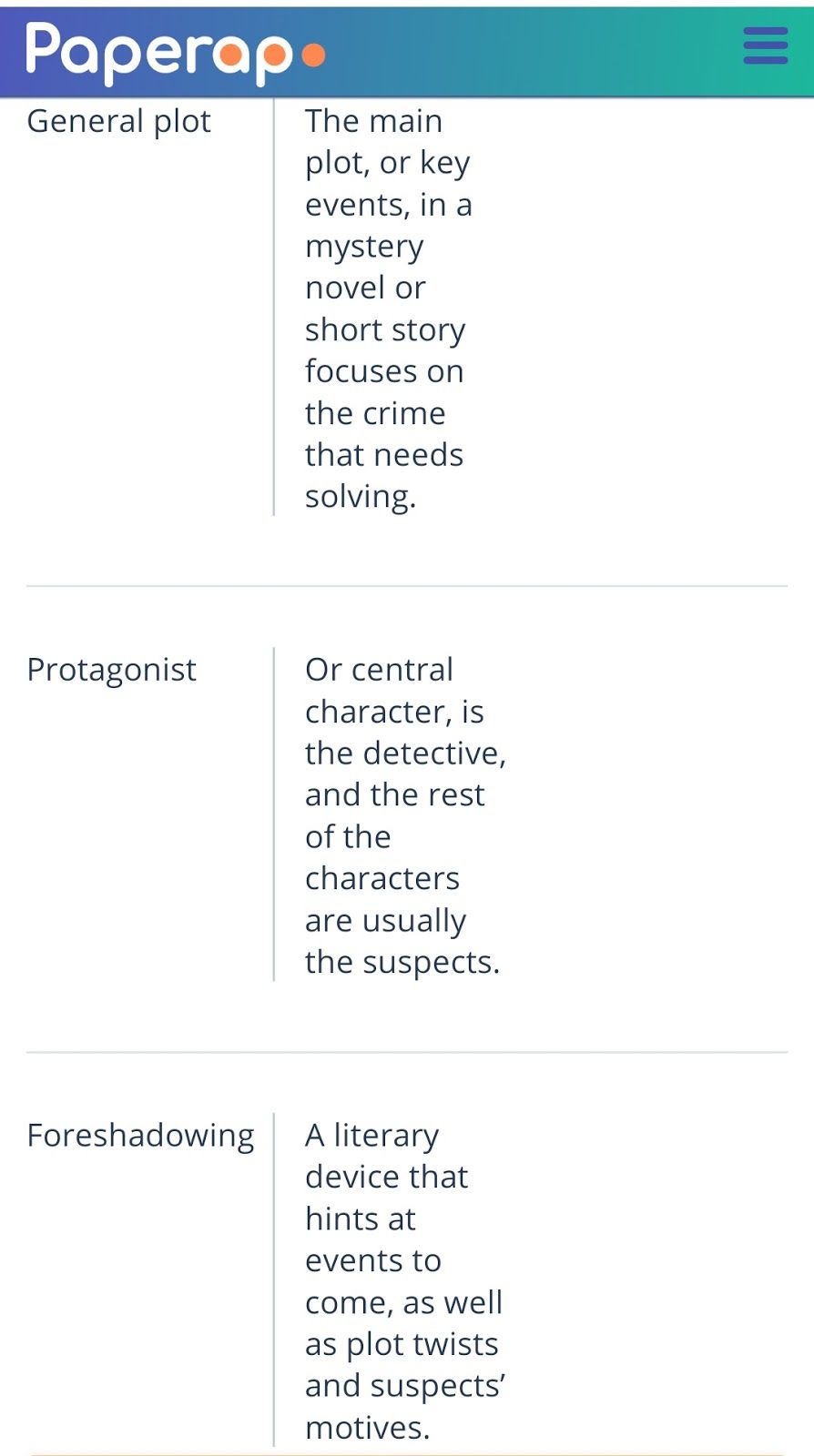
Source: Paperap
Mystery fiction can be divided into numerous categories, including
Amateur detective
Bumbling detective
Caper
Comedy detective
Cozy mystery or Softboiled
Espionage
Hardboiled
Historical mystery
Holmesian
Howdunit or Inverted mystery
Intuitionist
Legal thriller
Locked-room mystery or impossible crime
Medical thriller
Police procedural
Traditional mystery
True crime
Whodunit
Women in peril
Popular Mystery Books:
Murder on the Orient Express: Agatha Christie
Nancy Drew: Franklin W. Dixon
Hardy Boys: Edward Stratemeyer
Sherlock Holmes: Arthur Conan Doyle
Rebecca: Daphne du Maurier
The Women in White: Wilkie Collins
The firm: John Grisham
Crime and Punishment: Fyodor Dostoyevsky
The Secret Place: Tana French
The dark lake: Sarah Bailey
Dystopia
This genre also known as 'Dystopian Literature' usually outlines social and political structures in the dark settings.
Dystopia is a society of the poverty-stricken and oppressed.
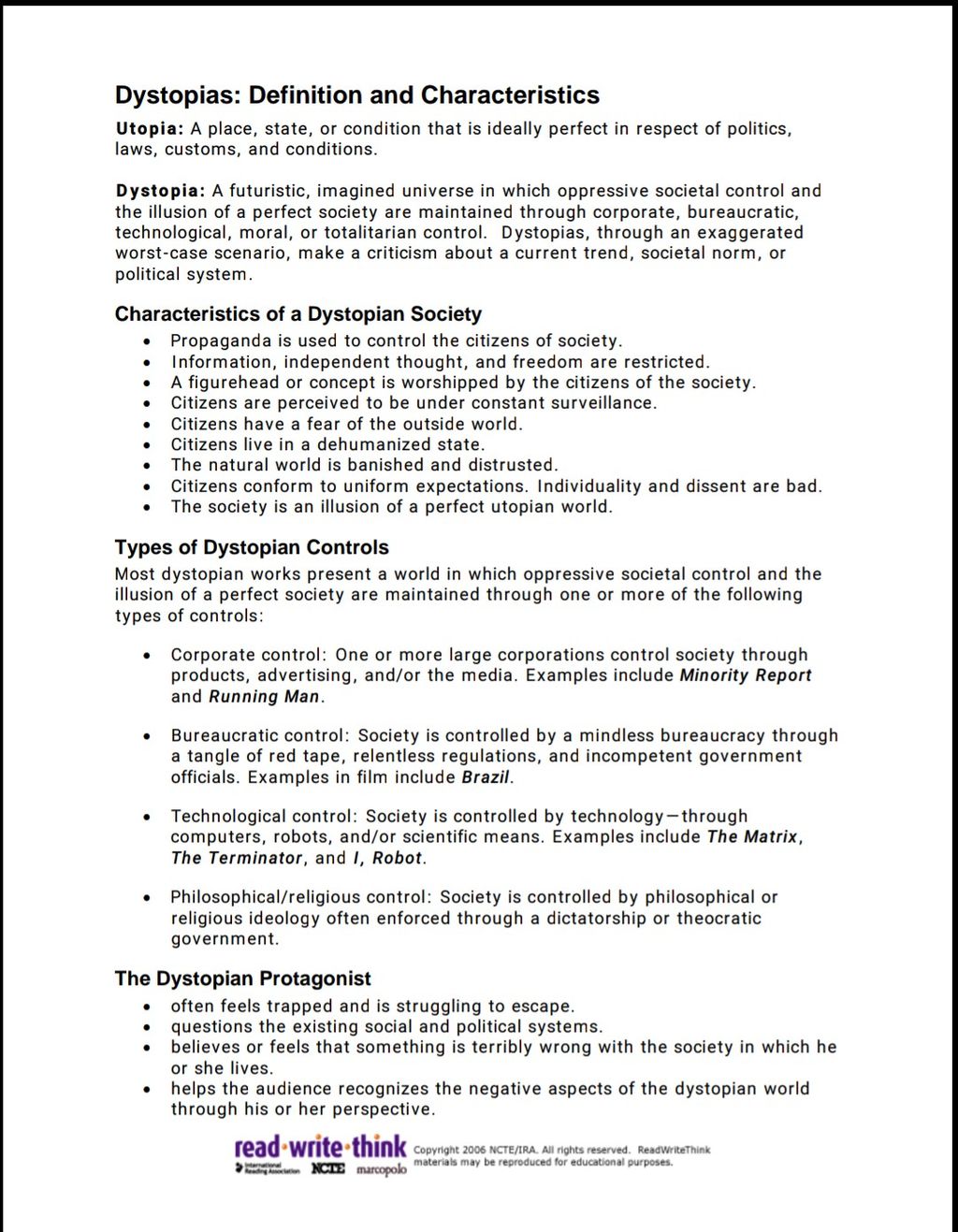
Source: ReadWriteThink
Popular Dystopian Books:
Gulliver's Travels (1726) by Jonathan Swift
The Begum's Fortune (1879) by Jules Verne
The Iron Heel (1908) by Jack London
The Heads of Cerberus (1919) by "Francis Stevens
The Trial (1925) by Franz Kafka
Brave New World (1932) by Aldous Huxley
Sometime Never: A Fable for Supermen (1948) by Roald Dahl
Minority Report (1956) by Philip K. Dick
Planet of the Apes (1963) by Pierre Boulle
Los Angeles: AD 2017 (1971) by Phillip Wylie
Western
Set in the late 19th century in the American Old West, this genre is a narrative of the life of a Nomadic gunfighter and cowboy.
Some common plots from this genre include:
The construction of a railroad or a telegraph line on the wild frontier.
Ranchers protecting their family ranch from rustlers or large landowners or who build a ranch empire.
Revenge stories, which hinge on the chase and pursuit by someone who has been wronged.
Stories about cavalry fighting Native Americans.
Outlaw gang plots.
Stories about a lawman or bounty hunter tracking down his quarry.
Popular Western Books include:
The Virginian: Owen Sister
The Big Sky: Alfred Bertram Guterie
True Grit: Charles Portis
Little Big Man: Thomas Berger
The Searchers: Alan Le May
Dead Man's Walk: Larry McMurtry
Inland: A Novel- Téa Obreht
A Lady of the West: Linda Howard
Dragon Teeth: Michael Crichton
The Psychology of the western: William Indick
Writing Genres (literary genres)
Prose
It is a form of writing that doesn't have a metrical structure. It mainly involves the usage of natural speech flow and very simple grammar. Most people think and write in prose form.
Poetry
It is an expression of thoughts, feelings, beliefs, opinions or ideas that are intensified with fancy and rhythmic attributes.
Drama
In literature, a drama is the portrayal of fictional or non-fictional events through the performance of written dialog (either prose or poetry). Dramas can be performed on stage, on film, or the radio. Dramas are typically called plays, and their creators are known as “playwrights” or “dramatists.”
Hybrid forms
“There are several types of Hybrid literature in existence. By nature, the forms it can take are infinite, being that to qualify as a hybrid form you need only cross genres, or alter a genre, into something unlike the original. Some hybrid forms include: prose poems, brief essays, flash fiction, playlets, unfilmable films, fables, lyric essays, epistles, ear plays, lists, footnotes, questions, instructions, autobiographies, and more.”
Some of the earliest literary critiques and rhetorical scholars are:
Plato
Athenian Philosopher, Plato, is of course the founder of the platonist school of thought and the First institution of higher learning in the west.
He was a member of the circle around Socrates.
His works include the Laws, Phaedrus, Euthyphro, Ion, Meno, Theaetetus, Phaedo,
Protagoras, Lysis, Hippias Minor
Aristotle
He has been one of the most popular and acclaimed Greek philosophers. He has written the Nichomachean ethics, poetics, politics, metaphysica, posterior analytics, etc.
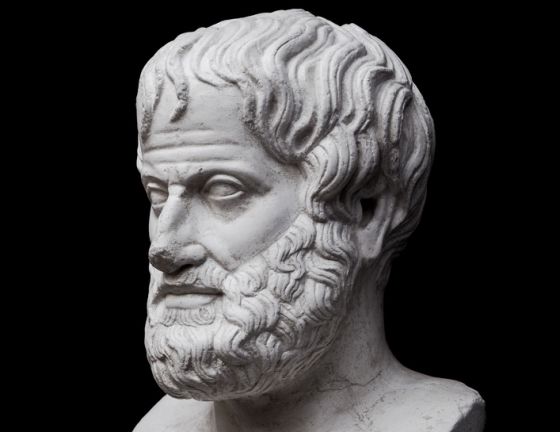
Source: visitgreece.gr
He died in 322 BC and after his death, his work stayed unrecognized for many years until the 1st Century!
Socrates
Socrates was yet another classic Greek Philosopher who has been credited as one of the founders of Western philosophy, and as being the first moral philosopher of the Western ethical tradition of thought.
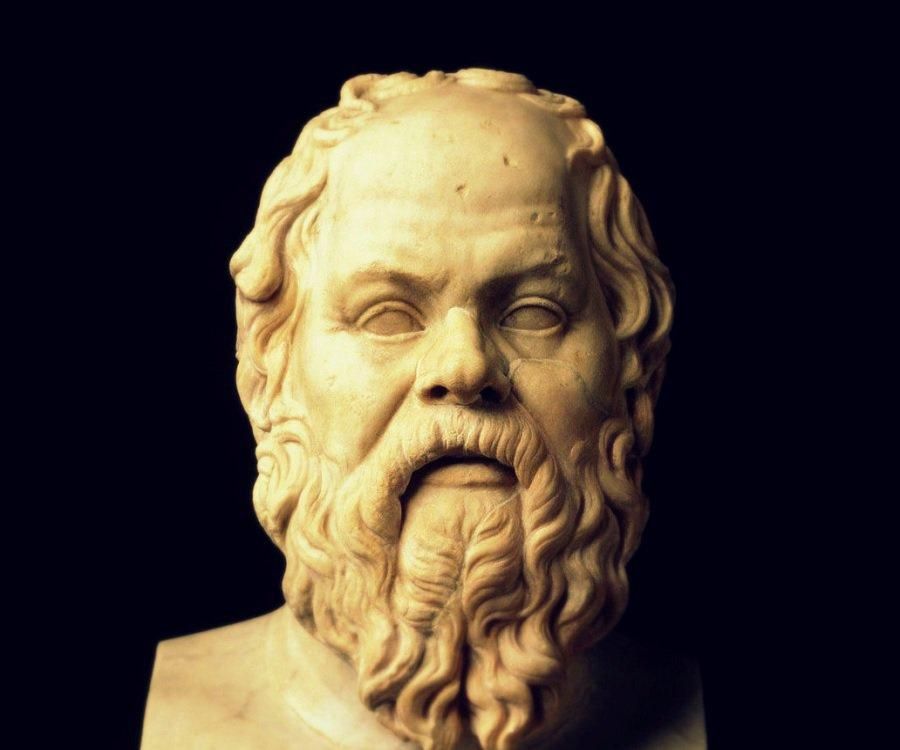
Source: freedom and citizenship.columbia.edu
Background -
Source: britannica.com: (Read More)
" Socrates was not well-born or wealthy, but many of his admirers were, and they included several of the most politically prominent Athenian citizens…. Socrates’ long fits of abstraction, his courage in battle, his resistance to hunger and cold, his ability to consume wine without apparent inebriation, and his extraordinary self-control in the presence of sensual attractions are all described with consummate artistry in the opening and closing pages of Symposium.... "
Aeschylus
The father of tragedy, Aeschylus was known to be credited for the existence of the Tragedy Genre.
His works include the Oresteia,
Prometheus Bound, the Suppliants, Libation Bearers, etc.
Aspasia
She was an immigrant to Athens of the classical era. Aspasia, (flourished 5th century BC), mistress of the Athenian statesman Pericles and a vivid figure in Athenian society. Although Aspasia came from the Greek Anatolian city of Miletus and was not a citizen of Athens, she lived with Pericles from about 445 until his death in 429.
Euripides
He was a tragedian of the classical Athens. Some ancient scholars attributed 95 plays to him but according to the Suda, it was 92 at most." Euripides was credited with being on an intellectual par with philosophers and his characters are given great rhetorical skills."
The prevailing genres of literary composition in Ancient Greece were all written and constructed to explore cultural, moral, or ethical questions; they were ultimately defined as the genres of epic, tragedy, and comedy.
Other literary genres
Play
a dramatic layout or piece; drama/scene/theatre
Musical
melodious; harmonious.
A music genre is a customary order or category that distinguishes some sections of music as affiliated to a tradition or faction of conventions.
Satire
a literary configuration in forms of verse or prose, most often involving sarcastic and ridiculing nature of expression.
Horror
Is a genre of fiction whose purpose is to create feelings of fear, dread, repulsion, and terror in the audience—in other words, it develops an atmosphere of horror.
Anthology
a book or compilation of assorted or selected works by diverse authors, usually in the similar forms of Literature, on the same matters of concern and more or less based in coequal periods.
Alternately; a collection of selected works of one author.
Classification of genres-
Fiction
Classic- of the first or highest quality, class, or rank; basic; fundamental. (Dictionary.com)
Comics/graphic novel- A graphic novel is a usually a publication of comic content.
A "graphic novel" may include nonfiction and fiction. It may also have periodical context.
Contemporary- existing or occurring at indistinguishable or same time; as is evident from the word. (Con: concordance, tempo: time, -rary: adverbial suffix)
Fable
a laconic or short account in the form of a tale, to impart usually,moral wisdom;
often with use of beings such as animals, inoperative or operative objects; apologue or narrative.
A fable is allowed to have hypnagogic, sublime, ethereal or impalpable and extraordinary elements to it.
Fairy tale
A story, generally having a positive and dream like backdrop is composed usually for children, many a times romantics. However, as a traditional literary form it's much more than and beyond the very common romantic subgenre! Other very typical characters could be hobgoblins, dragons, elves or other magical creatures
More genres under fiction:
Crime/detective
Fan fiction
Folktale
Legend
Magical realism
Mythology
Swashbuckler
Mythopoeiaeia
Young Adult Fiction
Meta fiction
Historical fiction
Non-Fiction
Biography
an account in biographical/ vividly explanatory form of an entity: a person, institution, society, community, theater, animal, etc.
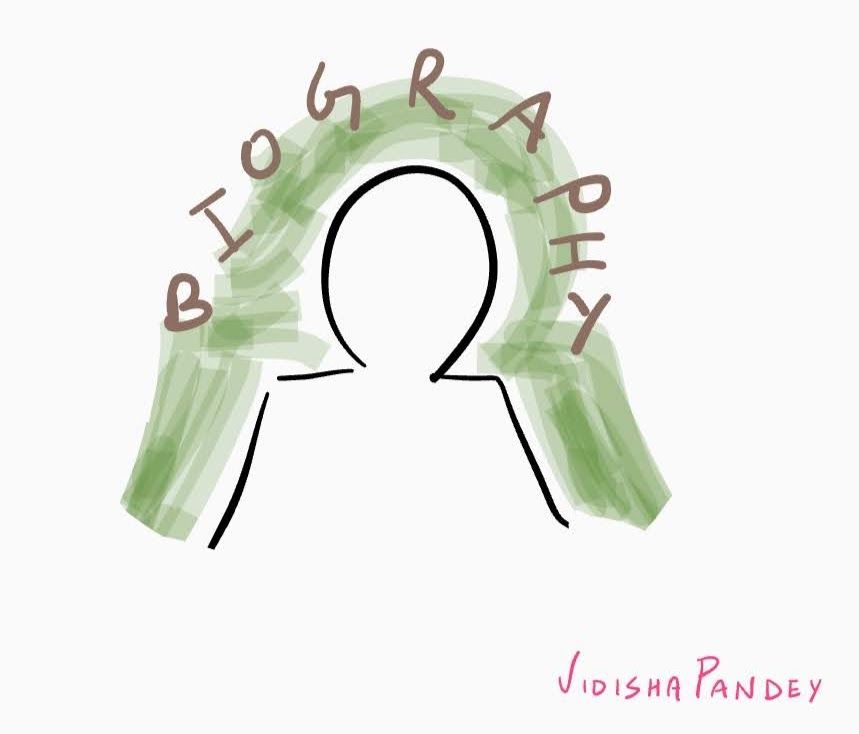
Memoir
a literary directory of events/experiences or incidences written, implemented or accommodated by a person having one-on-one knowledge or observation of them.
Other genres under Nonfiction:
Reference books
Self help books
Literature and history
Political books
Children's literature
I would love to know what your favourite literary genres are, comment below!
